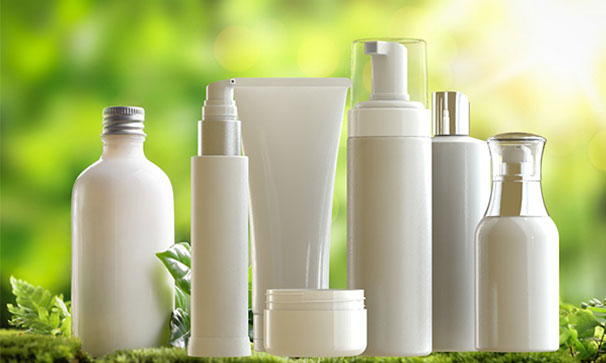
The demand for organic and sustainable products is on the rise, and nowhere is this trend more evident than in the skincare industry. Consumers today are more mindful of what they put on their skin, opting for clean, natural, and effective skincare solutions. If you’ve been dreaming of launching your own skincare line, private label organic skincare could be the perfect avenue to explore. With private label skin care products and custom skincare formulations, you can craft a brand that resonates with your target audience while standing out in a competitive market.
What Is Private Label Skincare?
Private label skincare refers to products that are produced by a third-party manufacturer but are branded and packaged under your business name. It allows entrepreneurs to introduce their own skincare line without the need for setting up expensive production facilities.
Specifically, private label organic skincare caters to the growing demand for natural and eco-friendly products. These private label skin care products are created using natural, sustainable ingredients that align with the values of conscious consumers.
Why Choose Private Label Organic Skincare?
1. Tap into a Growing Market
The organic skincare industry is booming, with reports suggesting that the global market is set to exceed $20 billion by 2027. This demand stems from consumer priorities like safe, sustainable, and toxic-free products. By offering private label organic skincare, you can position your brand to attract this expanding audience.
2. Custom Skin Care Formulations Tailored to Your Brand
Private label products provide the opportunity to work with manufacturers on custom skin care formulations. This means you can craft products with specific ingredients, fragrances, and textures that align with customer preferences. Want to create a rich moisturizing cream with shea butter or a detoxifying face mask with activated charcoal? The possibilities are endless.
3. Reduced Time and Investment
Launching a skincare brand from scratch can be costly and time-consuming. With private label skincare, you skip the heavy lifting of production and focus on building your brand identity, marketing strategy, and distribution channels.
4. Brand Exclusivity and Identity
Private label skin care products give you full control over your branding. From designing eye-catching packaging to creating unique selling points with organic certifications, you can establish your skincare line as an exclusive and trusted name in the industry.
Steps to Create Your Private Label Organic Skincare Brand
Step 1. Understand Your Target Market
Before diving into private label organic skincare, define who your audience is. Are you focusing on eco-conscious millennials? Busy moms looking for simple organic solutions? Luxury skincare enthusiasts? Knowing your demographics will help guide your product range, packaging design, and marketing efforts.
Step 2. Find a Reliable Manufacturer
The key to quality private label skin care products lies in finding a reliable manufacturer. Look for manufacturers that specialize in organic and natural skincare and offer custom skin care formulations. Ask about certifications like USDA Organic, Ecocert, or COSMOS. Verify their commitment to sustainable and ethical production practices.
Some questions to ask potential manufacturers include:
- Do you offer custom formulations for organic skincare?
- What is your ingredient sourcing process for organic products?
- Do you assist with compliance and regulations for skincare standards?
Step 3. Develop Custom Formulations
One of the major advantages of private label organic skincare is the ability to create products tailored to your brand vision. Work closely with your manufacturer to develop custom skin care formulations.
Think about what differentiates your brand:
- Key Ingredients: Opt for organic ingredients like aloe vera, chamomile, or jojoba oil that appeal to skin-conscious consumers.
- Purpose-Based Products: Create solutions for common skin concerns, such as anti-aging serums, acne treatments, or hydration boosters.
- Fragrance-Free or Aromatic Options: Some customers prefer organic aromatherapy in skincare, while others want completely unscented options.
Step 4. Build a Standout Brand
Your brand is what will set you apart from other private label skin care products on the market. Focus on these elements:
- Logo and Packaging Design: Choose biodegradable or recyclable materials to align with your organic values.
- Brand Storytelling: Craft a compelling story about why your brand started and its commitment to sustainability. Engage your audience with authenticity.
- Product Naming: Keep product names descriptive yet creative. For example, instead of merely “Organic Moisturizer,” go with something like “Botanical Hydration Elixir.”
Step 5. Ensure Compliance and Safety Regulations
Skincare products must adhere to industry regulations and certifications. For private label organic skincare, ensure that the formulations meet organic certification standards if you intend to label them as such. Work with your manufacturer to obtain necessary documentation and adhere to FDA guidelines for labeling, especially if you’re targeting the U.S. market.
Step 6. Launch Your Brand Online and Offline
Launching your private label organic skincare brand involves creating a seamless shopping experience for your customers.
- E-commerce Website: Display professional photos of your private label skin care products, feature detailed descriptions, and include testimonials.
- Social Media Marketing: Use platforms like Instagram to showcase product benefits and engage with your audience through tutorials or testimonials.
- Subscription Models: Offer monthly or quarterly subscriptions for convenience and a steady revenue stream.
Step 7. Engage with the Community
Custom skin care formulations and organic products attract a passionate community of eco-conscious skincare lovers. Building trust means going beyond the sale:
- Host webinars or Q&A sessions on why organic skincare matters.
- Blog about the benefits of specific key ingredients in your private label skin care products.
- Partner with influencers or advocates who align with your brand values.
Common Challenges and How to Overcome Them
While private label organic skincare is rewarding, challenges may arise along the way.
- High Competition: The organic skincare market is saturated. Focus on custom skin care formulations as your unique value proposition and emphasize your brand’s organic credentials.
- Initial Costs: While the upfront costs are lower than starting from scratch, investing in high-quality private label products still requires financial planning. Consider starting with a limited product line and scaling up as demand grows.
- Regulatory Hurdles: Compliance with skincare standards can seem daunting, but a reliable manufacturer will help you navigate these complexities successfully.
Why Custom Skin Care Formulations Are Key to Success
One-size-fits-all rarely works in today’s market. Offering custom formulations can set your brand apart by catering to the specific needs of your audience. For instance, including natural ingredients proven to soothe sensitive skin can attract a loyal customer base that struggles to find suitable products.
By creating unique products suited to your target audience, you build trust and tap into a market that feels underserved by mass-marketed solutions.
The Future of Private Label Organic Skincare
The private label organic skincare industry shows no symptoms of slowing down. More consumers than ever are looking for clean and ethical solutions, and private label skin care products help meet this demand while giving entrepreneurs an attainable entry point into the booming skincare market.
With custom skin care formulations, the ability to create a brand identity, and partnerships with reliable manufacturers, launching your own skincare line is no longer a far-off dream—it’s entirely achievable.





